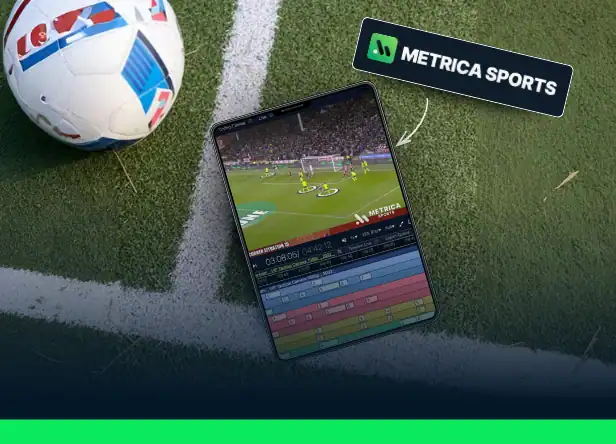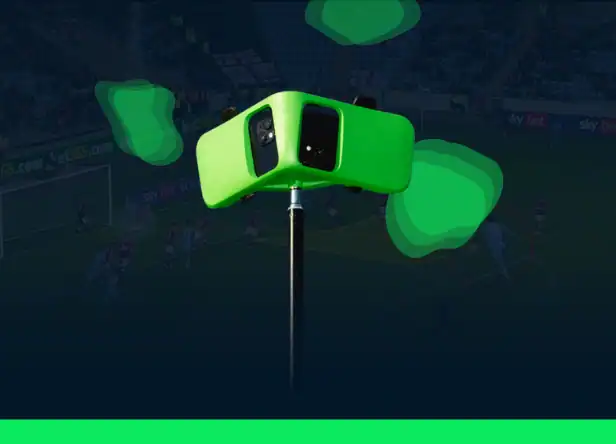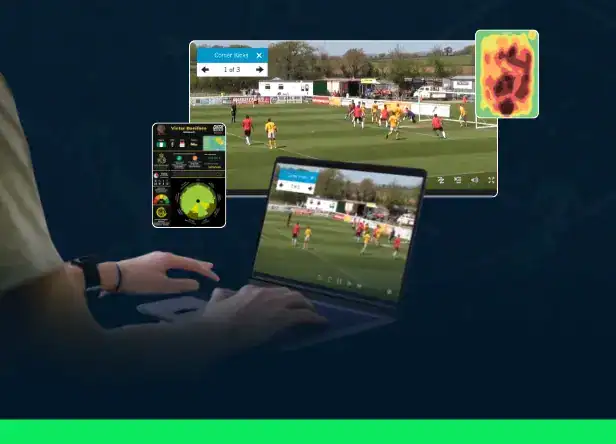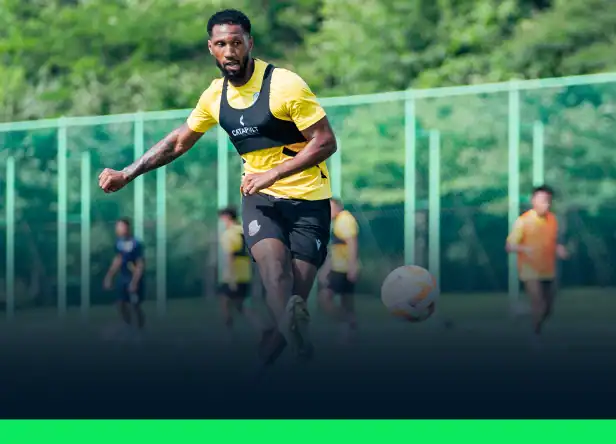Observe, understand, analyze, communicate. That’s the daily routine of a video analyst in soccer. Once reserved for top-tier clubs, this profession is now becoming more accessible—even at the amateur level—and is attracting a growing number of passionate individuals who want to contribute to the game differently.
Wondering how to become a soccer video analyst? This guide covers the role’s responsibilities, required skills, available training, career prospects, salary expectations, and, most importantly, the steps to get started.
What is a video analyst in soccer?
What is the role of a video analyst in soccer?
The video analyst is the tactical eye of the coaching staff. They work closely with the head coach and players, using match and training footage to analyze both team and individual behavior in order to help the squad improve.
In practical terms, the analyst films, breaks down and interprets sequences of play. They identify strengths and weaknesses in the game plan, study opponents’ patterns and produce clear and concise video edits.
“We’re the behind-the-scenes hands that save time for the staff and players. To sum up my job, I often say: I watch soccer matches.” – Marceau Goguer, video analyst for OL Féminin / Le Progrès
Main responsibilities
- Record matches and training sessions using appropriate cameras
- Use video analysis software to break down key sequences
- Identify gameplay patterns and provide individualized feedback
- Prepare visual reports (videos, PDFs, stats) before or after matches
- Take part in video sessions with players and coaching staff
- Support scouting, talent identification or performance evaluation
Pre- and post-match analysis
A video analyst’s work goes far beyond simply recording a match. It actually begins well before kickoff with an in-depth study of the opponent. Through detailed analysis of their game sequences, the coach can identify the opposing team’s strengths, weaknesses, recurring patterns and key behaviors.
But the analyst’s role doesn’t end when the final whistle blows. It continues in a post-match performance review. The goal of post-match analysis is to objectively evaluate what worked – and what didn’t.
What skills are needed for this job?
Becoming a soccer video analyst is much more than just watching matches closely. You need to acquire specific skills — both technical and tactical — and know how to communicate them effectively to the coaching staff and players.
“We use all sorts of different platforms to deliver the final product to the coaches and staff.” – Tom Johnson, first-team video analyst at Crystal Palace FC, on using tools like Wyscout, Opta, and Scout7.
Technical Skills
- Proficiency in specialized software: NAC Sport, Opta, LongoMatch, Once Video, Hudl SportsCode, Wyscout
- Strong observational and analytical skills
- Knowledge of video formats, compression, streaming and exporting
- Writing skills and a solid command of language for producing reports
- Ability to efficiently organize and store hours of footage
Tactical Skills
- Mastery of the rules of the game and tactical principles
- Understanding of systems (4-3-3, 3-5-2, etc.) and their dynamics
- Ability to adapt to a coach’s intentions or a playing philosophy
Analytical Skills
- Attention to detail and ability to synthesize information
- Ability to create dashboards or cross-analyze data and video
- Precision in structuring reports
Interpersonal Skills
- A passion for sports – and soccer in particular: this is obviously the first requirement for pursuing a career as an analyst
- Strong communication skills: making analyses simple and easy to understand
- Ability to work under pressure, especially on the eve of a match
What training is needed to become a video analyst?
The profession is not yet governed by a single official diploma, but specialized organizations offer dedicated programs to help you acquire the necessary skills. These training programs are very comprehensive and typically last several months.
At SoccerEDU, our soccer video analyst course is designed by experienced professionals. Our program combines theory and practical application to deliver a professional-grade education, accessible to all levels and 100% online. The content of our course will help you become an expert in the following areas:
- Game systems
- Tactical solutions based on the opponent’s system
- Key traits to identify when evaluating a player’s potential
- Assessing a player’s room for improvement
- Mastery of specialized video analysis software and data extraction methods
- Converting data into statistics
- Breaking down video footage into sequences
- Key performance indicators
- Writing analytical reports
At the end of the training, if you’ve put in the necessary work, you will be fully qualified to work as a video analyst in soccer.
What does a video analyst’s day-to-day look like?
The daily routine of a video analyst varies depending on the level of play and their status (full-time employee at a club, external consultant, or freelancer).
The video analyst within a club
In a professional club, the video analyst is a full member of the technical staff.
Their tasks include:
- Attending training sessions and matches
- Preparing pre-match videos featuring sequences of the opponent
- Debriefing after each game with targeted feedback
- Collaborating with the data, scouting, or medical departments (injury prevention)
- Monitoring certain players individually for specific support
The video analyst in amateur settings or as a freelancer
In amateur contexts or working freelance, resources are often more limited but the scope of work can be broader.
Their tasks include:
- Often handling everything: filming, editing, analysis
- Working remotely for multiple teams, clubs, or players
- Occasionally providing reports on an opponent or a player
The general trend remains a growing integration of the video analyst role within clubs but the freelance model also exists and is developing, notably thanks to digitalization and increased accessibility of cameras and remote analysis software.
What is the salary of a soccer video analyst?
At the start of their career, an analyst working within a professional club typically earns a gross monthly salary of around $3,500, which is about $42,000 per year. However, it’s important to know that the salary of a soccer video analyst varies greatly depending on the club’s level, the employment status (employee or freelancer), and experience.
Salary scale for a soccer video analyst
| Status | Estimated gross annual salary |
|---|---|
| Volunteer / amateur beginner | $0 to $10,000 |
| Beginner freelance analyst | $18,000 to $30,000 |
| Semi-professional club | $25,000 to $35,000 |
| Professional club | $35,000 to $60,000 |
| Senior analyst / head of video | Up to $70,000 and more |
As a freelancer, compensation depends on the type of assignment: match analysis, individual monitoring or scouting. Rates generally range from $100 to $500 per individual assignment.
Becoming a soccer video analyst, in summary
Once reserved for professional clubs, the role of video analyst has now become much more widespread. Increasingly, amateur clubs, training organizations and even federations are calling on analysts to optimize performance, refine strategy and support players. However, serious training remains an essential step to qualify for this role.





